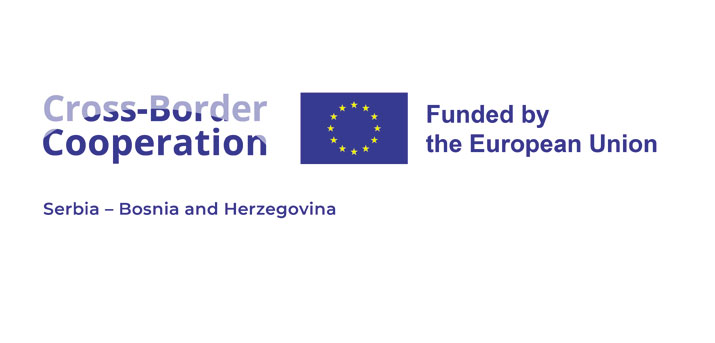Measure I.2: Cross-border initiatives targeting the exchange of people and ideas to enhance the professional and civic society cooperation.
Project Title: E – 761 Convergence
Project Budget:
| Project Value | EU Contribution | |
| Republic of Serbia | € 57.307,95 | € 48.585,68 |
| Bosnia and Herzegovina | € 58.711,94 | € 49.887,54 |
| TOTAL | € 116.019,89 | € 98.474,22 |
Beneficiary of funds in the Republic of Serbia: Academica – Akademska grupa
Beneficiary of funds in Bosnia and Herzegovina: Youth Information Agency – OIA
Partners:
- Serbia: Forum of Civic Action, Požega
Area of implementation:
- Serbia: Užice, Požega, Valjevo, Loznica, Šabac, Prijepolje
- Bosnia and Herzegovina: Bijeljina, Tuzla, Foča, Goražde, Srebrenica
The target groups of the project: Young people, local authorities, NGOs, Community Based Organizations, Educational Organizations, Professional Category, Research organizations, SME.
Project duration: 15.06.2013. – 16.06.2014.
Project objectives:
The overall objective:
To strengthen local economy of the Project (border) area (11 municipalities in total) by promoting the development of creative industries (CI), exchange of good practice, strengthening the work of creative youth and by creation of models of CI that include stakeholders in Project area.
The specific objectives of the project:
Specific objective A. To inform the public, especially local authorities about CI stakeholders’ attitudes, needs and potentials.
Specific objective B. To strengthen cross-border people-to-people interaction to jointly participate in local economic development through investment in CI and Youth Empowerment in Project area.
Specific objective C. To strengthen the capacity of youth groups and local governments for creative development and urban regeneration.
Specific objective D. To promote examples of good practice and models of local development through youth initiatives.
Activities and results of the project
The project included 11 local communities in Bosnia and Herzegovina and Serbia (Bijeljina, Tuzla, Foča, Goražde, Srebrenica, Užice, Prijepolje, Požega, Valjevo, Loznica, Šabac). The main idea was to introduce interested parties to the new possibilities of the creative development models. Also, the project pointed out to the importance of culture and creative activities (architecture, advertising, design, fashion, film and music industries, creation of software and IT services, artisan crafts and culture tourism, photography and video production, visual and performance arts, radio and television) for the economical and urban development of smaller cities.
It is very important to start a dialogue on the local level in order to initiate changes in the public policies of the municipalities and cities in line with the EU agenda till 2020 (Agenda 2020, Creative Europe. In order to introduce changes it is necessary to perceive culture and creative industries not as a cost but as a sector that can generate profit and employ people. Creative sector development changes perception of the local communities providing opportunity for them to keep young and talented people usually moving to larger cities or abroad.
The main project idea was identification of stakeholders and people with influence in the cities and including them in the activities of building capacities of young people and promotion of cross border cooperation through exchange of ideas, knowledge and best practice models.





